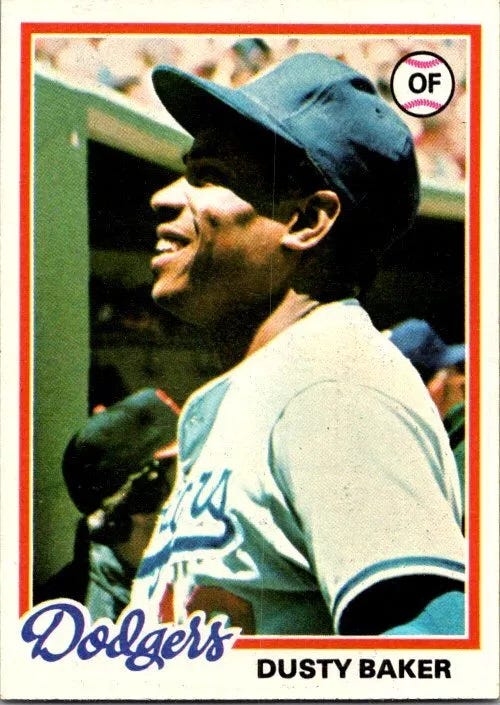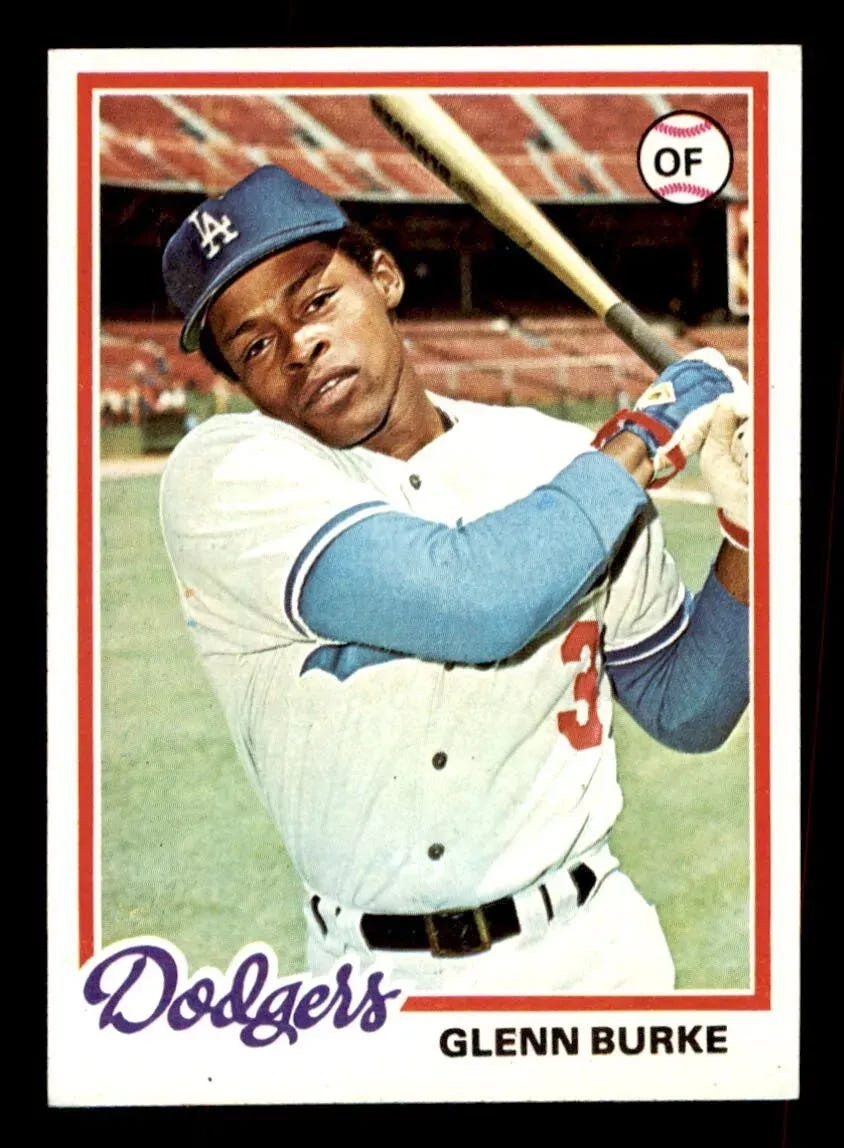In the final game of each major league season, batting titles are won and lost. Playoff berths can be decided. And, every so often, history can be made. Such was the case on the final day of the 1977 season.
On Sunday, October 2, 1977—47 years ago today—the Los Angeles Dodgers had a home game against the Houston Astros. After two straight seasons of playing second fiddle to Cincinnati’s Big Red Machine, the Dodgers had broken through and captured the National League West title. They had already clinched the division title, and knew their playoff opponent would be the Philadelphia Phillies. They had very little to play for on that day.
The Astros, however, were at the other end of the baseball spectrum. A win that day would get them to .500, but they had long since been eliminated from the postseason. Still, they sent the ace of their staff, J.R. Richard, out to face the division champions. They would win the NL West title three years later, but their time had not yet come.
Tommy Lasorda, in his first year of managing the Dodgers, gave most of his starters the day off. Reggie Smith, Ron Cey, and Davey Lopes did not play, and others, such as Steve Yeager and Bill Russell, made only token appearances. But one of the Dodger regulars, leftfielder Dusty Baker, did have something to play for.
Baker was sitting at 29 homers for the year, which was good enough for a top ten finish in the National League. Three of his teammates—Smith, Cey and Steve Garvey—had already hit 30 home runs, and if Baker could also get there, it would be the first time that four teammates had accomplished this feat in the same season. 46,000 fans were waiting to see if the Dodgers could make history on that day.
In order to give him an extra at bat if needed, Lasorda put Baker third in the lineup that day. Reggie Smith was the Dodgers’ usual number 3 hitter, and Baker typically hit sixth or seventh in the order. But since Smith was out, and history was on the line, Baker got bumped up in the batting order that day.
Baker’s first at bat against Richard resulted in a base hit. It was better than making an out, but also not what the fans were there to see. Baker came up again in the fourth inning and struck out. He still had at least one chance, and possibly two, to make history that day, but it wasn’t looking good for him.
When the bottom of the sixth inning came around, Manny Mota led off with a pinch hit home run. Strangely enough, it was the first homer he had hit in five seasons, and turned out to be the final one he would hit in his long big league career. And it also ensured Baker would get another chance that inning. Two outs later, history was made when Baker homered to center. It was the first and only time in his career that Dusty Baker hit 30 homers in a single season.
After rounding the bases and basking in the Dodger fans’ applause, Baker came upon the on-deck hitter, a young outfielder named Glenn Burke. Burke had gone in for Rick Monday the inning before, and was hitting in the cleanup spot in the order. Burke had a hand raised up over his head. Baker crossed home plate, raised his hand to meet Burke’s, and went back into the dugout. His day was over, as he was taken out of the game the next inning. But he had put his team in the record books, in his last at bat of the regular season.
Inspired by Baker’s feat, Burke then proceeded to hit a homer of his own. It was his first one in the majors, and one of only two that he would ever hit. But at the time, it had lifted the Dodgers into the lead and gave the fans who had stayed around something else to cheer about. The Dodgers had taken the lead, and three home runs in the same inning against J.R. Richard was something that didn’t happen very often.
The Astros then came back to score 4 runs in the top of the seventh inning, and Richard went the distance, striking out 14 along the way. The Dodgers won the National League pennant that year, but lost the World Series to the Yankees in six games, capped off by Reggie Jackson’s dramatic three home run game in Yankee Stadium.
Dusty Baker’s home run that day will be recorded in the annals of the game, and Glenn Burke’s response to it lives on, as well. Two and a half years later, when the 1980 Louisville Cardinals basketball team made their run to the NCAA championship, the act of “high-fiving” someone entered into the sporting and cultural mainstream. Some on the team have even claim to have “invented” the high-five themselves. And yet it was Glenn Burke—whose name you likely had not heard before you read this—and Dusty Baker—who nearly every baseball fan knows—who pioneered this gesture of affirmation, nearly a half-century ago.
That’s all for now. Until next time….






A gem! And always bringing me back, a genuine gift! Thank you!
I was 11 and living in LA. I absolutely remember four 30-home runs. And strangely I remember Glenn Burke. But I didn't remember the high five and didn't realize its significance until a few decades later. Thanks for reminding me and a nice memory.